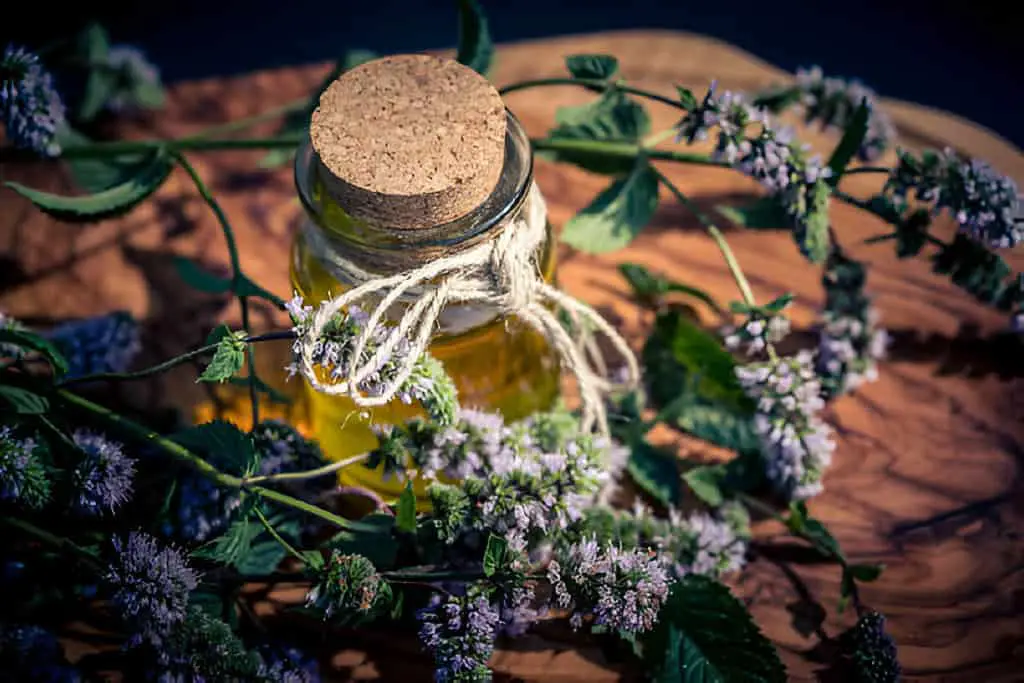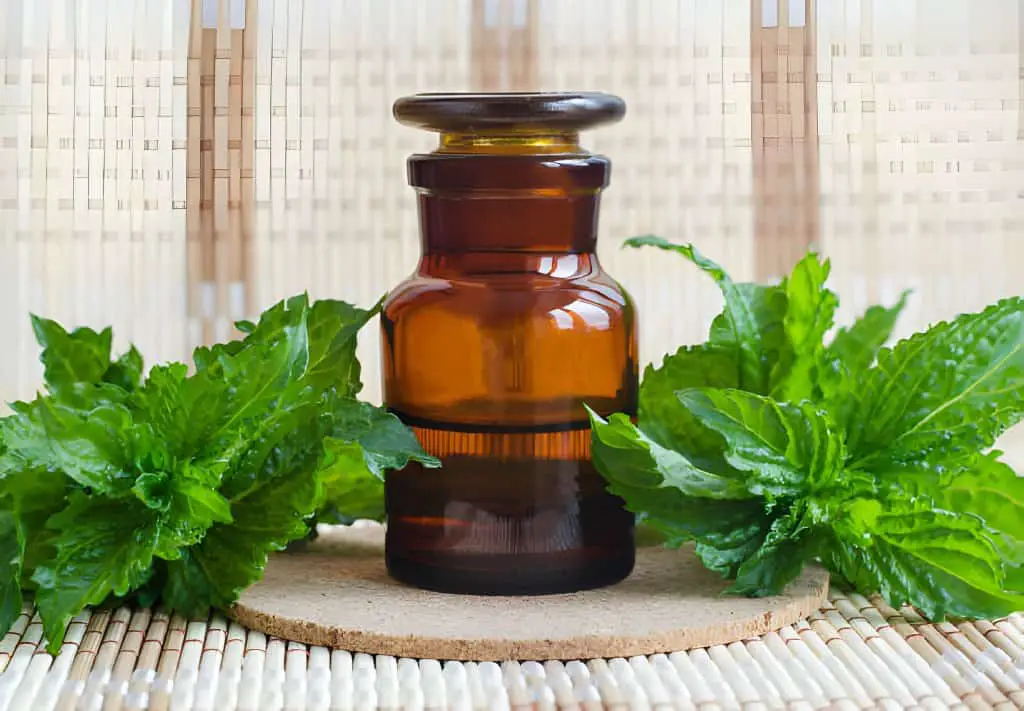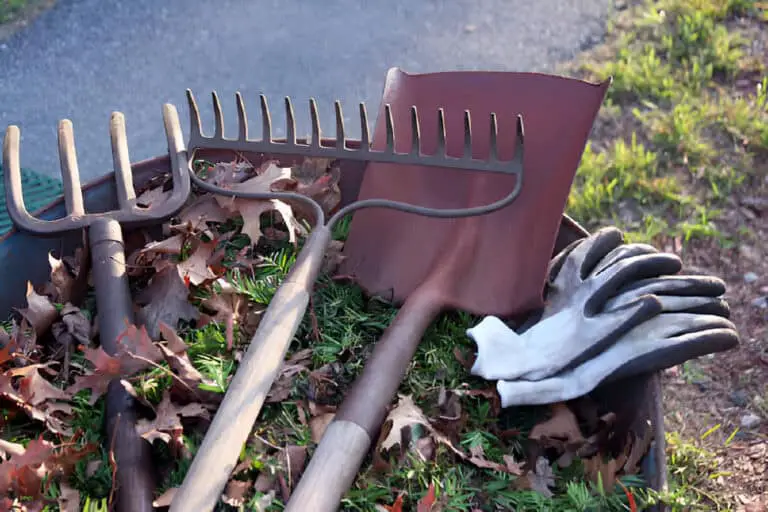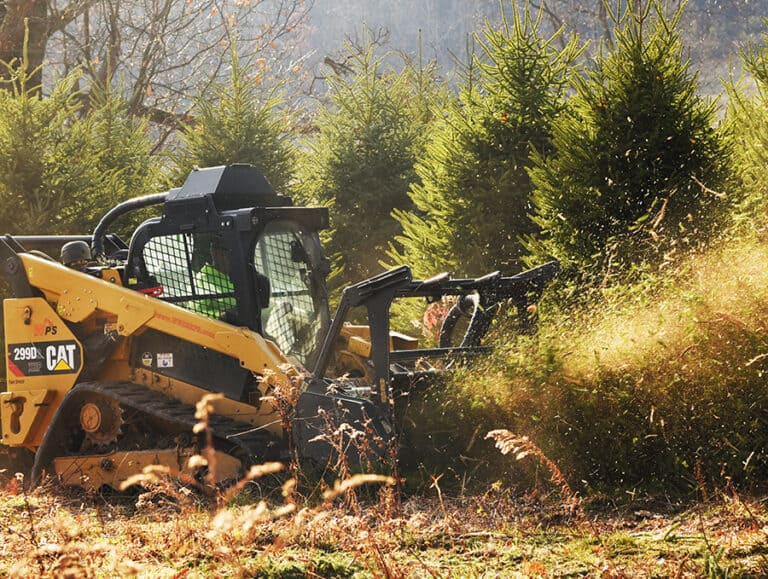How to Make Peppermint Oil Bug Repellent Spray for Your Garden?

Have you ever been angry at pests for ruining your garden but hesitant to use harsh chemicals? If so, you’re not alone. Many gardeners seek natural alternatives to protect their plants. One effective solution is a homemade peppermint oil bug repellent spray.
Peppermint oil is is safe and environmentally friendly, but it’s also highly effective in keeping a wide range of garden pests at bay.
In this article, we’ll guide you through the simple steps to create this natural remedy. By the end, you’ll know how to keep your garden pest-free without compromising the health of your plants or the environment. Embrace a greener way to garden and ensure your plants thrive with this easy-to-make, eco-friendly bug repellent.
The Benefits of Using Peppermint Oil

Natural and Non-Toxic
Peppermint oil is a natural insect repellent that doesn’t rely on harmful chemicals. It’s safe for use around children, pets, and edible plants, making it an ideal choice for a family garden. Peppermint oil is unlike synthetic insecticides. It won’t harm helpful insects. Bees and butterflies are vital for pollination.
Effective Against a Variety of Pests
Peppermint oil is great against many garden pests. These include ants, aphids, beetles, spiders, and mosquitoes. Its strong scent deters insects. It disrupts their ability to communicate and navigate. This keeps them away from your plants.
Easy to Make and Use
Making your own peppermint oil bug repellent spray is straightforward and cost-effective. With just a few ingredients and some basic tools, you can create a powerful insect deterrent that can be applied directly to your garden.
Ingredients and Tools You’ll Need
To make your peppermint oil bug repellent spray, you’ll need the following ingredients and tools:
Ingredients
- Peppermint Essential Oil: The primary active ingredient.
- Water: Acts as the base for the spray.
- White Vinegar or Witch Hazel: Helps the solution mix better and enhances its repellent properties.
- Liquid Dish Soap: Helps the solution adhere to the plants.
Tools
- Spray Bottle: For applying the repellent.
- Measuring Cup and Spoons: For accurate measurements.
- Funnel: To pour the mixture into the spray bottle without spilling.
Step-by-Step Guide to Making Peppermint Oil Bug Repellent Spray
Step 1: Gather Your Ingredients
Start by assembling all the ingredients and tools listed above. Ensure your spray bottle is clean and free from any previous residues to avoid contaminating your repellent.
Step 2: Mix the Ingredients
In a measuring cup, combine the following:
- 2 cups of water
- 1 cup of white vinegar or witch hazel
- 10-15 drops of peppermint essential oil
- A few drops of liquid dish soap
Stir the mixture thoroughly to ensure all ingredients are well blended. The vinegar or witch hazel helps the oil mix with the water, while the dish soap helps the solution stick to the plants’ leaves.
Step 3: Transfer to Spray Bottle
Using a funnel, carefully pour the mixture into your spray bottle. Secure the lid tightly and shake well to ensure the ingredients are properly combined.
Step 4: Test the Spray
Before applying the spray to your entire garden, it’s a good idea to test it on a small section of plants. This will help ensure that the solution doesn’t cause any adverse reactions. Wait 24 hours and check for any signs of plant distress.
Step 5: Apply to Your Garden
Once you’ve confirmed that the spray is safe for your plants, you can proceed to apply it to your garden. Spray the mixture evenly over the plants, focusing on the undersides of leaves where pests tend to hide. Reapply every 7-10 days or after heavy rain.
Tips for Effective Use of Peppermint Oil Bug Repellent Spray
Apply During Cool Hours
It’s best to apply the spray during the cooler parts of the day, such as early morning or late afternoon. This prevents the sun from causing the mixture to evaporate too quickly and ensures better adherence to the plants.
Reapply Regularly
Peppermint oil bug repellent spray should be reapplied regularly to maintain its effectiveness. Aim to reapply every 7-10 days, or more frequently if you notice an increase in pest activity.
Combine with Other Natural Remedies
For maximum pest control, consider combining peppermint oil spray with other natural remedies. You can also use neem oil, garlic spray, and diatomaceous earth with peppermint oil. This makes a more complete pest control plan.
Monitor Plant Health
Regularly inspect your plants for any signs of pest damage or stress. Adjust how often you apply and what mix of remedies you use. Do this to keep your garden healthy and free of pests.
Additional Uses of Peppermint Oil in the Garden
Repelling Larger Pests
Peppermint oil can also be used to deter larger pests such as rodents and deer. Soak cotton balls in peppermint oil. Put them around your garden or near vulnerable plants.
Treating Plant Diseases
Peppermint oil has antifungal properties that can help treat and prevent certain plant diseases. A diluted spray can be applied to affected plants to combat issues like powdery mildew and fungal infections.
Enhancing Garden Aromas
In addition to its pest-repellent properties, peppermint oil can enhance the overall aroma of your garden. Its refreshing scent can create a pleasant environment, making your garden a more enjoyable place to spend time.
Safety Considerations When Using Peppermint Oil
Dilution is Key
Peppermint oil is potent and should always be diluted before use. Undiluted oil can cause skin irritation and damage to plants. Follow the recommended dilution ratios to ensure safe and effective use.
Store Properly
Store your peppermint oil and the prepared spray in a cool, dark place to maintain their potency. Avoid exposure to direct sunlight and high temperatures, which can degrade the oil’s effectiveness.
Use Caution Around Pets
While peppermint oil is generally safe, it can be toxic to pets in large quantities. Keep pets away from treated areas until the spray has dried, and consult your veterinarian if you have any concerns.
Conclusion
Making your own peppermint oil bug repellent spray is an effective, eco-friendly way to protect your garden from pests. With simple ingredients and easy steps, you can create a powerful deterrent that keeps your plants healthy and thriving. Using it often and with other natural remedies can enhance its effectiveness. It provides full pest control. Embrace the natural power of peppermint oil and enjoy a vibrant, pest-free garden.





